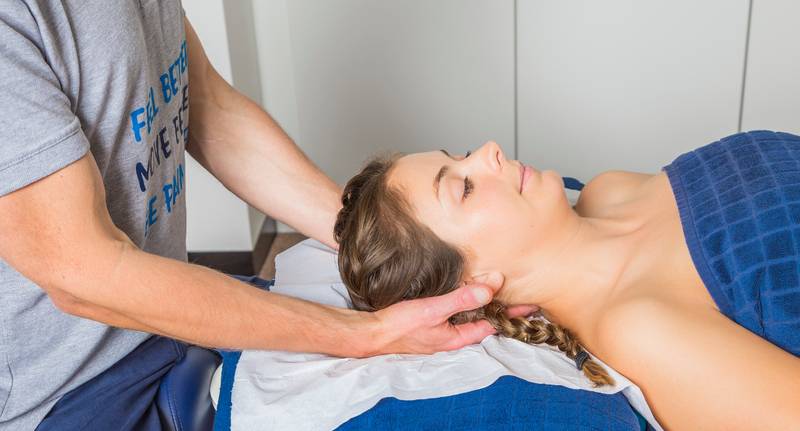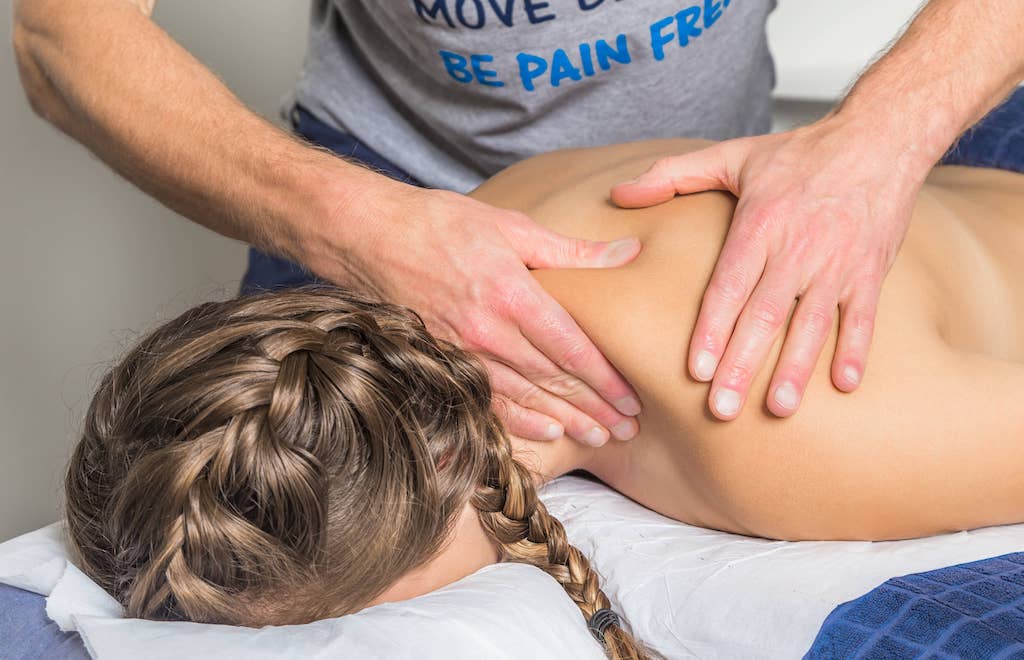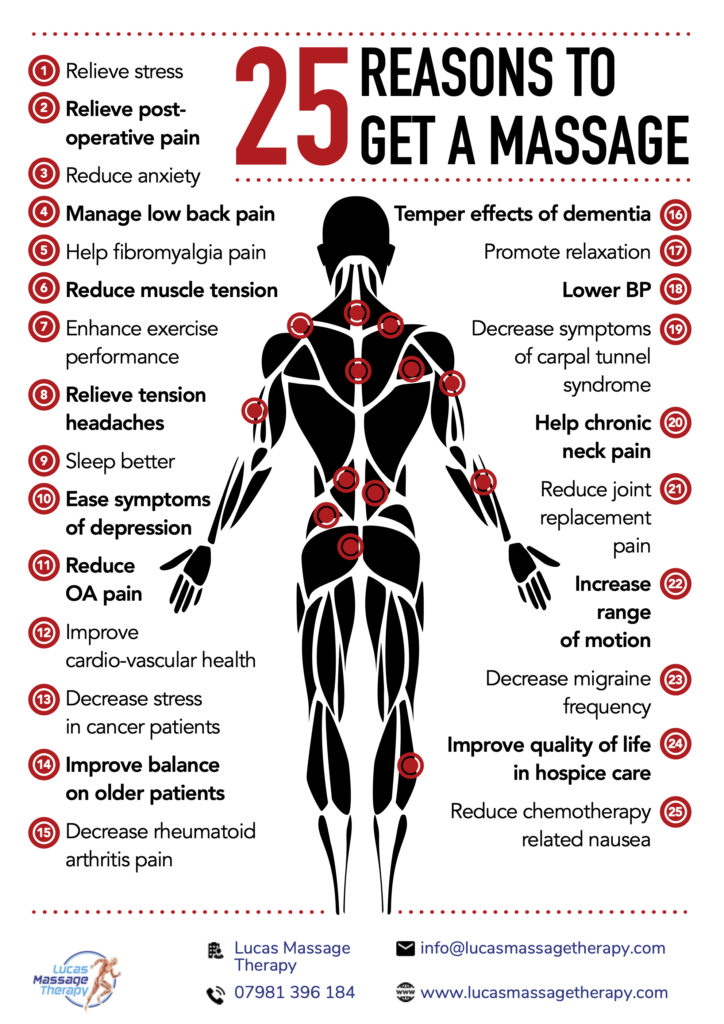How does massage relieve stress? Stress and anxiety are both universal and not always negative. Stress can serve as a positive motivator when aiming for a promotion or completing an important task. It can also be temporary, such as when dealing with traffic or airport delays. However, stress can become a long-term companion due to financial difficulties, chronic illness, family issues, or the isolation caused by COVID-19. When faced with anxiety or stress-inducing events, our bodies respond physically.
Heart rate and blood pressure increase while muscles tense up. In evolutionary terms, our bodies prepare for the fight or flight response, engaging in physical activity to release the built-up stress. Nowadays, however, we often lack the need to fight or escape, leaving no physical outlet for the tension caused by stress. When stress persists over extended periods, the accumulated physical effects can harm the body.
Cortisol, a stress hormone, levels rise, preparing the body for the fight or flight response. While small amounts of stress can benefit a person, excessive stress can lead to prolonged high cortisol levels, which affect metabolism, the immune system, and memory, and may trigger depression. Additionally, stress and elevated cortisol levels can manifest as physical symptoms such as headaches, upset stomach, high blood pressure, chest pain, and disrupted sleep. Research also suggests that stress can trigger or worsen certain symptoms or diseases.
Common indicators of stress include:
1. Changes in behaviour, such as outbursts of anger, substance abuse, abnormal eating patterns, withdrawal from social interactions, and tobacco use.
2. Shifts in mood, including feelings of anxiety, irritability or anger, lack of motivation or concentration, restlessness, and sadness or depression.
3. Physical changes like chest pain, fatigue, headaches, muscle tension or pain, decreased sexual drive, disrupted sleep patterns, and stomach discomfort.
HOW DOES MASSAGE RELIEVE STRESS?
Massage is a widely practised technique in various cultures that promotes deep relaxation and reduces anxiety. The anxiety-reducing and mood-enhancing effects of massage are attributed to alterations in brain activity, decreased cortisol levels, and increased activity of the parasympathetic nervous system, which naturally calms the body and mind during times of stress.
Massage also improves focus and boosts the body’s immune response by enhancing the activity of natural killer cells. Functional brain imaging studies demonstrate changes occurring in multiple areas responsible for regulating emotions and stress responses. Massage can lower heart rate and blood pressure, relax muscles, and increase the release of endorphins, the body’s natural feel-good chemicals. Additionally, massage stimulates the release of serotonin and dopamine, resulting in a tranquil state of relaxation that helps alleviate both chronic and acute stress.
When the body faces stress, it conserves energy by suppressing the digestive and immune systems while increasing circulation to the heart, muscles, and lungs. With prolonged stress, this response can lead to a weakened immune system, elevating the risk of infections and immune-related disorders. Digestive and elimination issues may also accompany chronic stress.
Massage therapy has the potential to restore normal circulation, enhance immune system functioning, and aid in normalizing digestion. Prioritizing self-care is essential, and incorporating therapeutic massage into your routine can improve your overall well-being and mental state. In fact, stress relief alone can enhance vitality and mindset.

TYPES OF MASSAGE FOR STRESS RELIEF
Deep tissue massage, Swedish massage, and therapeutic massage are the most commonly utilized techniques to alleviate stress.
1. Deep tissue massage focuses on the deeper layers of soft tissues to address muscle tension and pain caused by stress. By stretching and spreading muscle fibres and tissues, this type of massage aims to promote muscle relaxation, increase movement, reduce pain, and alleviate stress.
2. Swedish massage aims to relax both the body and mind by manipulating the muscles. Through muscle manipulation, Swedish massage helps to relieve tightness, tension, and physical effects of stress, thereby reducing anxiety and stress levels. Stress relief and relaxation.
3. Therapeutic massage applies gentle pressure to areas with soft tissues, with the main goal of promoting relaxation. By increasing localized blood flow, therapeutic massage triggers the release of positive hormones such as endorphins, serotonin, and dopamine. These hormones contribute to a sense of well-being, enhance relaxation, and reduce stress. Additionally, increased blood flow improves tissue elasticity, preventing the formation of muscular knots and further reducing tension and stress.
HOW DOES MASSAGE RELIEVE STRESS? The best massage techniques to relieve stress
Deep tissue massage utilizes strong pressure to penetrate into the deeper layers of muscle tissue. Both superficial and deep tissues can hold a significant amount of muscle tension. By increasing the muscle temperature, deep strokes promote tissue elasticity, resulting in the relaxation of muscles and the reduction of tension. This reduction in muscle tension not only alleviates pain but also enhances mobility.
Trigger point therapy effectively targets stress reduction. Trigger points, which are knots or tightness in muscles and associated connective tissues (myofascial), can impede proper muscle function and cause referred pain in various areas, such as headaches. During trigger point therapy, firm pressure is applied using fingers and thumbs to induce ischemic compression. This compression temporarily restricts blood flow, which then increases upon release of pressure. Consequently, the trigger point softens, leading to pain relief and stress reduction.
Lymphatic drainage also aids in reducing muscle tension. This technique involves stimulating the lymphatic system to enhance the efficient removal of metabolic waste products. Excessive waste products can accumulate following an injury, surgery, or muscle overuse. These waste products contribute to muscular fatigue, weakness, swelling, and pain, which can restrict movement and hinder the healing process. In turn, this may lead to stress and anxiety as individuals feel frustrated by their inability to use the affected area or participate in physical activities.
To address this, a variety of long, deep strokes are employed to facilitate the elimination of metabolic waste products from the body, while replenishing it with oxygen and nutrients. By improving the efficiency of lymphatic drainage and reducing swelling, pain, and restrictions, frustration and stress are consequently minimized.

WHEN CAN A MASSAGE HELP TO REDUCE STRESS AND ANXIETY?
Massage to reduce stress. Massage can effectively reduce stress in various situations. These include instances of acute pain, post-injury recovery, and when seeking relaxation. By alleviating stress, massage can also help decrease pain. Stress has a direct impact on muscle tightness, which can intensify pain. This creates a harmful cycle where increased pain leads to higher stress levels, further exacerbating the pain.
How does massage relieve stress? A massage aims to promote both physical and mental relaxation, which can be beneficial in the aftermath of an injury. Injuries often give rise to conditions such as swelling, muscle fatigue, and weakness. Stress can be heightened due to the inability to resume physical activity or the presence of pain. Through psychological relaxation, massages offer a way to alleviate stress. This relaxation is accompanied by an increase in positive hormones like endorphins, serotonin, and dopamine, resulting in a sense of well-being and a positive mindset.
How does massage relieve stress? By reducing stress, massages enhance the healing process, enabling a quicker return to physical activities. Moreover, massages contribute to overall stress and anxiety reduction through the promotion of blood flow, reduced cortisol levels, and lower blood pressure. It is important to acknowledge that massage not only elicits a physiological response that reduces stress but also has significant psychological effects on our physical and mental well-being.
An essential aspect of massage is the opportunity it provides for personal time, characterized by tranquillity, relaxation, aromas, soothing music, introspection, or even restful sleep. These elements greatly contribute to both our physiology and psychology.
What massage is best for stress?
A Swedish massage is best for stress.
How does a massage reduce stress?
By stimulating the release of endorphins and reducing the levels of stress hormones in the body.
How to relieve stress quickly?
Take slow, deep breaths and try relaxation techniques such as meditation or yoga. Engaging in physical activity or hobbies can also help reduce stress levels.
How does self massage reduce stress?
Self massage can help reduce stress by promoting relaxation, relieving muscle tension, and increasing blood circulation.
HOW DOES MASSAGE RELIEVE STRESS AND ANXIETY? Benefits of massage

Lucas Massage Therapy

